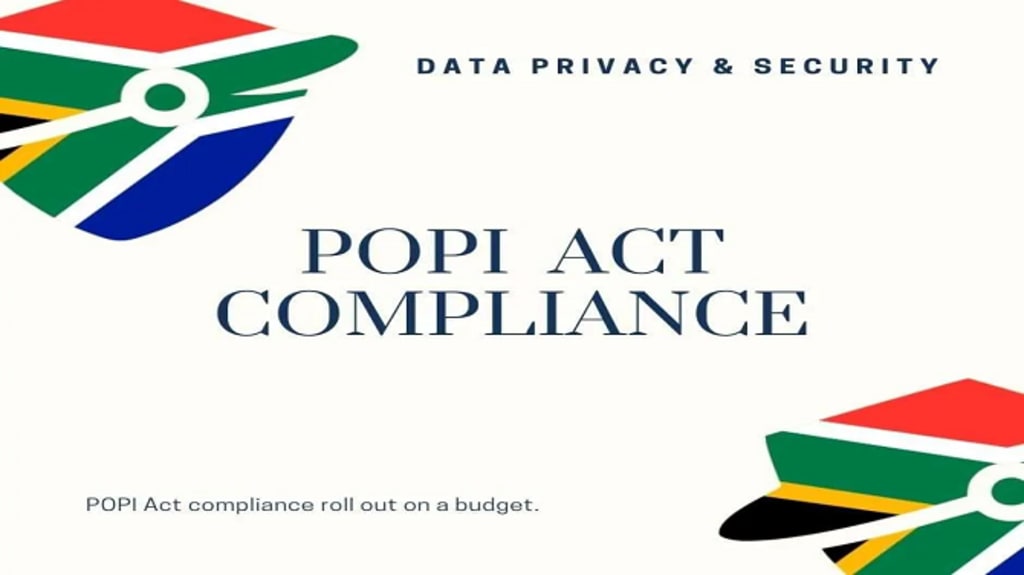Understanding the New POPI Act Requirements: Strengthening Data Protection in South Africa
New POPI Act Requirements

In an increasingly data-driven world, safeguarding personal information has become a critical concern. The Protection of Personal Information Act (POPIA), South Africa's comprehensive data protection legislation, was enacted to ensure the secure and responsible handling of personal data. Recently, the POPI Act underwent significant amendments, introducing new requirements that businesses need to adhere to. In this article, we will explore the key provisions of the new POPI Act requirements and their implications for organizations operating in South Africa.
Enhanced Consent and Lawful Processing: Under the new POPI Act requirements, obtaining valid and informed consent from data subjects has become even more crucial. Organizations must now ensure that consent is freely given, specific, and obtained for each purpose of data processing. Implied or bundled consent is no longer acceptable. Additionally, organizations must have a valid lawful basis for processing personal information, such as the necessity for the performance of a contract, compliance with a legal obligation, or the legitimate interests of the organization or a third party.
Expanded Data Subject Rights: The new POPI Act requirements reinforce the rights of data subjects and grant them greater control over their personal information. Individuals now have the right to request the confirmation of whether their data is being processed, access to their personal information, and the ability to correct inaccuracies. Organizations must provide mechanisms for data subjects to easily exercise these rights and respond to requests within prescribed timeframes.
Data Protection Impact Assessments (DPIAs): The POPI Act now mandates organizations to conduct Data Protection Impact Assessments (DPIAs) for high-risk processing activities. DPIAs help organizations identify and mitigate privacy risks associated with data processing activities. By conducting DPIAs, organizations can demonstrate their commitment to data protection and ensure compliance with the new POPI Act requirements. DPIAs should be conducted before implementing new processing activities or making substantial changes to existing ones.
Appointment of Information Officer and Data Protection Officer: To promote accountability and effective data protection practices, the new POPI Act requirements make it mandatory for organizations to appoint an Information Officer. The Information Officer is responsible for ensuring compliance with the POPI Act within the organization and acts as the primary point of contact for data subjects and the Information Regulator. Additionally, organizations engaging in large-scale processing activities or processing special categories of personal information must appoint a Data Protection Officer (DPO) to oversee data protection efforts.
Security Safeguards and Breach Notification: The new POPI Act requirements emphasize the importance of implementing appropriate security safeguards to protect personal information. Organizations must implement technical and organizational measures to prevent unauthorized access, loss, or destruction of personal data. In the event of a data breach, organizations must notify the Information Regulator and affected data subjects without undue delay, highlighting the nature of the breach and providing recommended measures to mitigate its impact.
The new POPI Act requirements mark a significant step towards strengthening data protection in South Africa. By prioritizing individual rights, consent, accountability, and security, the amendments aim to foster a culture of responsible data handling and enhance privacy practices within organizations. To ensure compliance, businesses operating in South Africa must familiarize themselves with the new requirements, review their data processing activities, and implement robust mechanisms to protect personal information. Embracing these changes not only ensures compliance with the law but also builds trust with customers, partners, and stakeholders, ultimately contributing to the long-term success of organizations in a data-driven society.





Comments
There are no comments for this story
Be the first to respond and start the conversation.